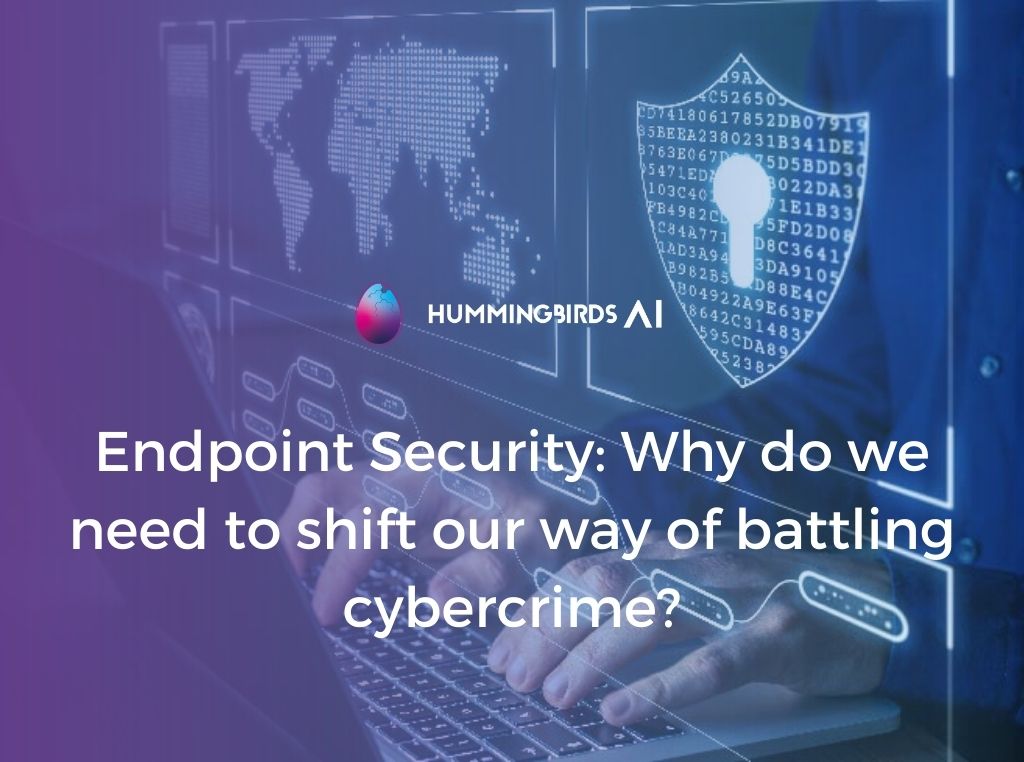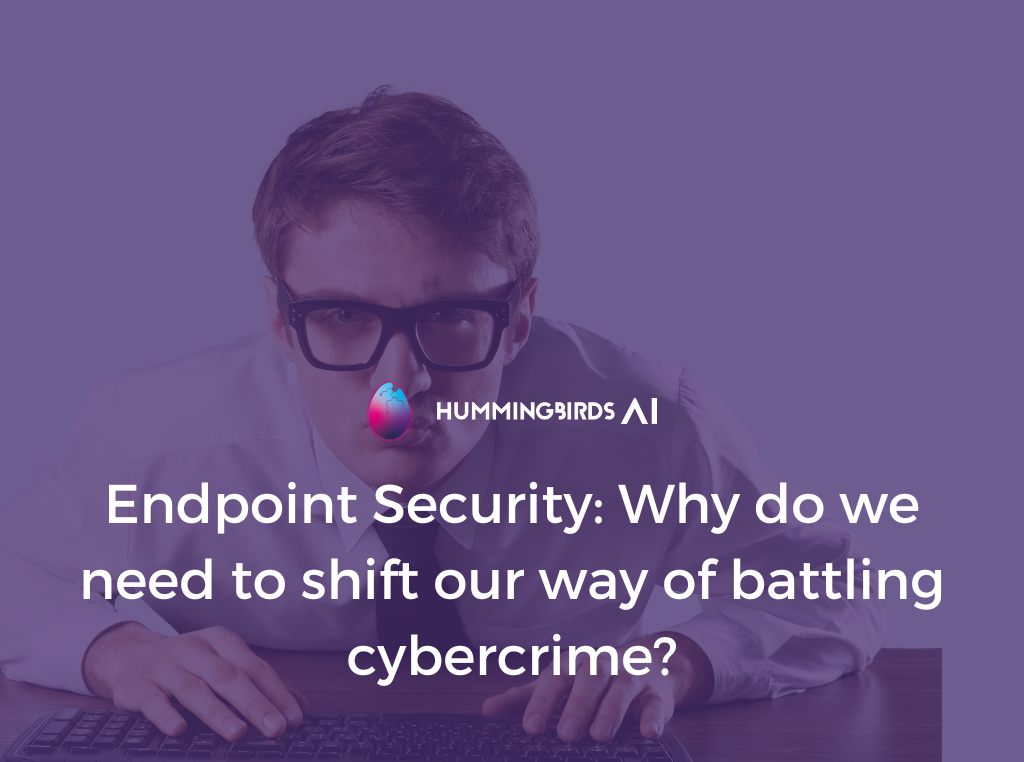With cyber attacks not only increasing everyday but becoming more sophisticated, the need arises to start talking on how to protect enterprises from new and more complex cyber threats that may cause real harm to their data or even a complete loss of it. Did you notice that nowadays to sign in into an app or a website you need complicated and endless passwords? Or as it happens in some enterprises you need security keys or tokens beside the password to access your device? That’s the maximum cybersecurity enterprises take.
Nowadays, not only attacks and attack methods are surpassing constantly but the landscape is also changing and thereby creating greater challenges for security experts. Organizations are, now more than ever, dealing with the endless fight of searching new ways to protect their IT networks from intruders. While the internet made working from home, a coffee shop, or the beach really easy, it also exposed a company’s network to more cyber threats, making it crucial to secure it. But as you will find out in this article, cybersecurity is not rocket science and there’s a great variety of solutions to approach this with AI leading the way.
Cyber threats in numbers, a scary picture
Cyber threats are not something to be afraid of but something to take care of. Cyberattacks don’t only happen to large corporations. Small businesses, NGOs have to protect their IT systems, too. Just putting all this into numbers:
- Globally, 30,000 websites are hacked daily.
- 64% of companies worldwide have experienced at least one form of a cyber attack.
- 94% of malware is delivered by email.
- 48% of malicious email attachments are office files.
- On average, every employee has access to 11 million files.
- About 60% of companies have over 500 accounts with non-expiring passwords
- More than 77% of organizations do not have an incident response plan.

Endpoint Security as a cornerstone
But let’s just start from scratch. Why is endpoint security so important? Endpoint security is the practice corporations use to protect their networks against cyber threats, while employees work from the office or any place they choose. Endpoints are the entry points of IT networks, including desktops, laptops, tablets, mobile devices, servers, and printers. So the more devices connect to the network, the weaker its security becomes.
Endpoint security has always been important and a headache for most businesses, at least in the last few years. All businesses, regardless of their size or industry, need endpoint security. Without the proper device security, an employee could accidentally give access to sensitive corporate data, or even the network itself. We as humans make mistakes all the time and that’s part of life, of evolving, but when talking about cybersecurity a single mistake can deeply compromise an entire business. So understanding how to address the latest evolving cyber threats is vital.
Antivirus, Passwords and VPNs are just not good enough
So with cybersecurity threats taking different forms, organizations need also to be able to prevent their businesses from being bruised and here’s where a big number of them rely on traditional ways such as endless passwords and antivirus. But what happens next? They suddenly find out that those procedures are not enough. Traditional solutions like antivirus software have become a deficient defense as they focus only on a small part of the network security while hackers are moving all around.
Also, passwords have become useless to protect data as we, the users, often use the same one in more than one device giving a hacker complete access to all our devices. To add more, even the 2nd step authentication is no longer useful because it implies a second validation method which means another device keeping all your passwords. All of this makes everything even more complicated.
Another issue regarding security solutions such as antivirus or VPN’s is that they lean on signatures and if, for any reason, the virus definition is not updated, your enterprise becomes exposed to any kind of threat.
So while in the past most security breaches came in through the network, today threats are increasingly coming in through endpoints. Why? because employees rely every day more on mobile devices and home computers to connect to company networks and that is where a centralized security solution comes to be useless for today’s changing times. In such a way, it may happen that a single employee could make a mistake by sharing sensitive company information on their smartphone or clicking on a corrupt link — and that could lead to a data breach. Nowadays, security must focus on keeping strong control over access points to prevent vulnerabilities that can arise through the use of these remote devices. According to a new report by HP Wolf Security, 79% of IT teams have seen an increase in endpoint security breaches.
AI may become a real solution to fight cyberthreats
A clear example of the importance of cyber securing networks and devices has to do with the Colonial Pipeline ransomware attack. Last year this was one of the most renowned attacks and it started because endpoints weren’t up to date. In 2021, a state of emergency was declared in a number of US states after hackers caused a vital oil pipeline to shut down. Colonial Pipeline carries 45% of the east coast’s supply of diesel, petrol and jet fuel and this attack led to panic. The race in endpoint security is accelerating but the good news is AI has started playing an important role in it and helping enterprises win this battle or at least giving a tough fight.
AI seems to be part of everything we know, use or buy and is for sure reshaping a great amount of industries and security is not the exception. Biometrical solutions, for example, mean a better and improved management of data as they can handle and analyze tons of data sets and track down a wide variety of cyber threats. Beside that, they can also learn and improve from past experiences. This technology is therefore becoming an important tool to enhance cyber defenses as well as identify and remediate new threats in times where solutions must be accurate and at a high speed.
According to a survey delivered by Capgemini Research Institute, 56% of the firms say their cybersecurity analysts are overwhelmed and 23% are not able to detect all breaches. Beside that, those organizations that have already dive into the AI world also explain how AI helped them overcome the new challenges of cybersecurity. 3 out of 4 executives say that using AI allows their organization to respond faster to breaches and 3 in 5 firms say that using AI improves the accuracy and efficiency of cyber analysts.
Key benefits AI has to offer for Endpoint security
So if you are asking yourself if AI may be the answer to cybersecurity, the answer is a big YES and here are several key benefits that AI-based endpoint security can offer:
-
Real time monitoring:
AI-based endpoint security solutions can track and continuously monitor all endpoint activities. This allows a rapid attack detection to be able to address gaps in defenses. AI can also spot the difference in a software that has previously been defined as legitimate but used by an attacker to perform malicious activities and then reclassify it and ensure it can’t execute.
-
Automated data discovery:
Automated data discovery and inventory tools can tell organizations exactly what data they have and where it resides. How is this done? by scanning endpoints or corporate networks to identify resources that could contain sensitive information, such as hosts, databases, web applications and file shares. Sophisticated systems are able to gather data located in multiple types of files such as .doc, .pdf, .xls to name some of them.
-
Risk-based vulnerability management:
Its aim is to discover, prioritize and remediate vulnerabilities that pose the greatest risk to an organization and to do this it uses threat intelligence to identify the vulnerabilities attackers are experimenting with and generate risk scores based on the likelihood of exploitation. It combines risk assessment and how critical that risk may be, to then be able to focus patching efforts on the vulnerabilities that are most likely to be used.
-
Video-biometrics: This mechanism frequently verifies a user’s authenticity after they have logged in and for the entire session. This technology targets the biggest risk factor in computer security which is people leaving their workstations unlocked or unattended. It protects against tailgating – the takeover of an unlocked computer by another person (session cheaters) when a user goes to lunch or a meeting. It also protects against piggybacking – when a user knowingly gives an unauthorized person access to their system/session. It also prevents those who look over your shoulder to be able to read your sensitive information.
At Hummingbirds AI we know that hybrid working is the present and the future, that is why it is important to implement robust security policies that go beyond static authentication solutions. Digital transformation offers huge benefits to businesses but this new landscape may also put at risk organizations’ sensitive data thus a strong endpoint security is essential.
It’s time to put ourselves into action by developing security strategies that consider the full picture of endpoint protection. So in order to boost organizations’ security position we need to boost security solutions too. That’s why we created GuacamoleID. GuacamoleID is a touchless continuous authentication solution for enterprise computers that protects employees’ devices against unauthorized access. This facial biometric application continuously matches the faces in front of the computer with authorized ones; and automatically blocks the screen when unauthorized people are detected. GuacamoleID is a sophisticated facial matching system that helps verify and confirm an individual instantly and without passwords. Using GuacamoleID, the face is the key. This means that whenever the user steps away, there is no need to close the session: guacamoleID will do it automatically, just like it will unblock the screen when the user is back.
Hummingbirds AI`s touchless continuous authentication is based on a sophisticated facial matching system to verify and confirm an individual. To perform this, GuacamoleID uses the camera on any device to continuously run its detection technology and identify authorized users from those who are not. Because we put privacy-first, all of our processing is done on-device. Anyone can utilize digital content safely and securely without the risk of prying eyes or shoulder surfing. We deliver real-time continuous authentication, providing faster decision-making, preemptive security, and overall data breach awareness.
















